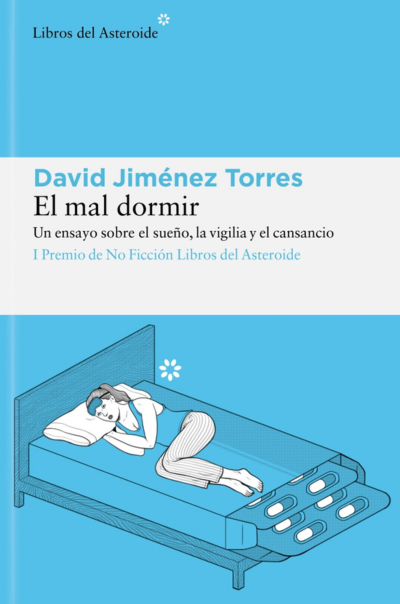The negotiation between the Socialist Party and the different leftist and nationalist parties to form a coalition government fills the front pages of the newspapers and covers the radio and television stations. The umpteenth proof of how fond of the political game we Spaniards have become, since the luxury of details that the media give us far exceeds what is strictly informative, revealing that the greatest show in our country, dangerously approaching football, is politics.
However, I am afraid that it is not a game, nor what is being negotiated is a change of government. It is not the former because from politics emerge those who represent the Spanish people and work in institutions. However, it is politicians themselves who often insist on demonstrating the contrary, as was evident during the inauguration of some of our newly elected deputies, depositaries of national sovereignty and, however, with little capacity for understanding and highly reprehensible behaviour. In truth, since politicians (especially our representatives) are the mirror of society, this influences the substance of the matter —ideology, interests, etc. As for the forms, Spanish society is currently far above its political class. In this field, it is difficult to find a reliable representation today.
Likewise, there are those who have seen with normality, interest, and even scorn, many of the oath office that a few days ago gave us several of their eminences. Among others, the JxCat deputies did it «for the Catalan republic»; those of Bildu, in Basque «for the Basque Republic»; and those of ERC, «for the freedom of political prisoners and even the constitution of the Catalan republic, by legal imperative.» However, few have seen it with alarm which, in my opinion, should have been the dominant reaction. Not surprisingly, this shows that, in addition to not being a game, they are do not merely represent a new Congress or a simple change of government. These formulas of compliance with the Spanish Magna Carta by those who devote themselves professionally to attacking it reveal that the (very probable) new government will bring about profound changes to the 1978 regime, which has as its cornerstone a Constitution that 25 percent of our congressmen feel it does not represent them. Thus, the change of government will actually amount to a real change of regime. For three fundamental reasons.
First, because of those who will configure it. In this regard, to a certain extent it is irrelevant whether there are parties that will form part of the Executive led by Sánchez or simply abstain to facilitate its formation. Be that as it may, the new government will be indebted to those who have lent their support (or acquiescence). This is exemplified by the case of Navarra, where Bildu is asking the Navarrese socialists for very expensive favours in exchange of their support in the investiture of Chivite.
Second, when this is taking place is also very important. But not the timing that media outlets talk about, which mostly focuses on whether there will be a government for Christmas or not. It is rather a contextual question, of the landscape, both national and European and global, in which this new Executive, emanating from this Congress, would enter into action. Added to the international economic slowdown, there is an unprecedented political, territorial, social and institutional instability in Spain since the 1981 coup d’état (if not greater), and there is nothing to predict that a government made up of communists, socialists and nationalists will prove to be capable of eliminating tensions and overcoming crises, but quite the opposite.
Finally, and this is something surprisingly absent —or marginal— in the media and the speeches of political leaders, there is the question of what is being agreed upon. Well, what the PSOE has already agreed with Podemos, and now it is negotiating with ERC and other smaller political formations, is the liquidation of the Constitution in an implicit —as they do not say it— but evident way. There is no cover of the night in this siege of the Magna Carta. It is being done in plain daylight, in full view of all Spaniards. And the key lies in the support of the nationalists and the communists to a socialist party that has become a caricature of what it was.
The Fourth French Republic collapsed, above all, due to the lack of consensus and the succession of governments that were formed and dissolved with amazing speed
Indeed, all these changes that the new government will bring are of such depth that they denote more than a mere replacement of the Executive. To verify this, it is worth taking a brief look back, and going back in time to the Fourth French Republic, since the parallels are crystal clear and, precisely for this reason, disturbing.
As it seems to have happened with Catalonia in the case of Spain, the trigger for the collapse of the Fourth French Republic came with the Algerian crisis of 1958: its colony with the largest Gallic population, which was desperately seeking its split from the metropolis. As it is also the case in Catalonia, the situation was aggravated by tensions between a high percentage of the population, who wanted to continue being part of France, and those who wanted to separate. And precisely for this reason, as in Catalonia as well, the conflict between the territory that was fighting for its independence and the metropolis acquired high rates of internal friction and social fracture.
Times have changed a lot in sixty years, and the use of violence is increasingly (luckily) residual in order to achieve political returns in the West. Even those uses which are legitimate in today’s democracies, such as the preservation of the rule of law. Perhaps this explains why, unlike in Algeria in 1958, a conflict with a civil-war air has not broken out in Catalonia. Nor that, unlike then, a faction of the army has not attempted to rebel to unilaterally end the separatist desire. The tension is similar, but the mechanisms used today, although close, are not identical.
But what is especially revealing is that the Fourth French Republic, in addition to the nationalist and separatist clashes noted above, collapsed, above all, due to a lack of political consensus and a succession of governments that were formed and dissolved with astonishing speed. Thus, in the parliamentary system of the Fourth Republic there were 21 prime ministers between 1947 and 1958.
To these serious circumstances, in the Spanish case, we must add the fact that, for the first time in Western Europe, the Communists will form part of a government, with the inevitable consequences that this will have, sooner or later, for the creation of wealth, the preservation of the welfare state and the safeguard of the liberties of citizens.
To conclude the comparison, in France in the late 1950s, in the face of a total collapse, President De Gaulle led a process for the dissolution of the Fourth Republic and called a constitutional convention that would give rise to the Fifth (and current) French Republic. In today’s Spain, Sánchez —for ideological or merely pragmatic reasons, which is indifferent as it is equally despicable— is doing exactly the same thing: changing the constitutional order. However, there is a major difference. The Fifth Republic was born through a constitutional reform process, while the new Spanish regime that will detach itself from the more than possible government of nationalist and leftist forces will do so through its subversion. A constitutional order that, with its virtues and defects, has brought the longest period of harmony, coexistence, prosperity and freedom in the history of our country. A Constitution that is the pillar of a regime that is worth preserving, and even more so in light of the negotiated nightmarish alternative that seems already imminent.






